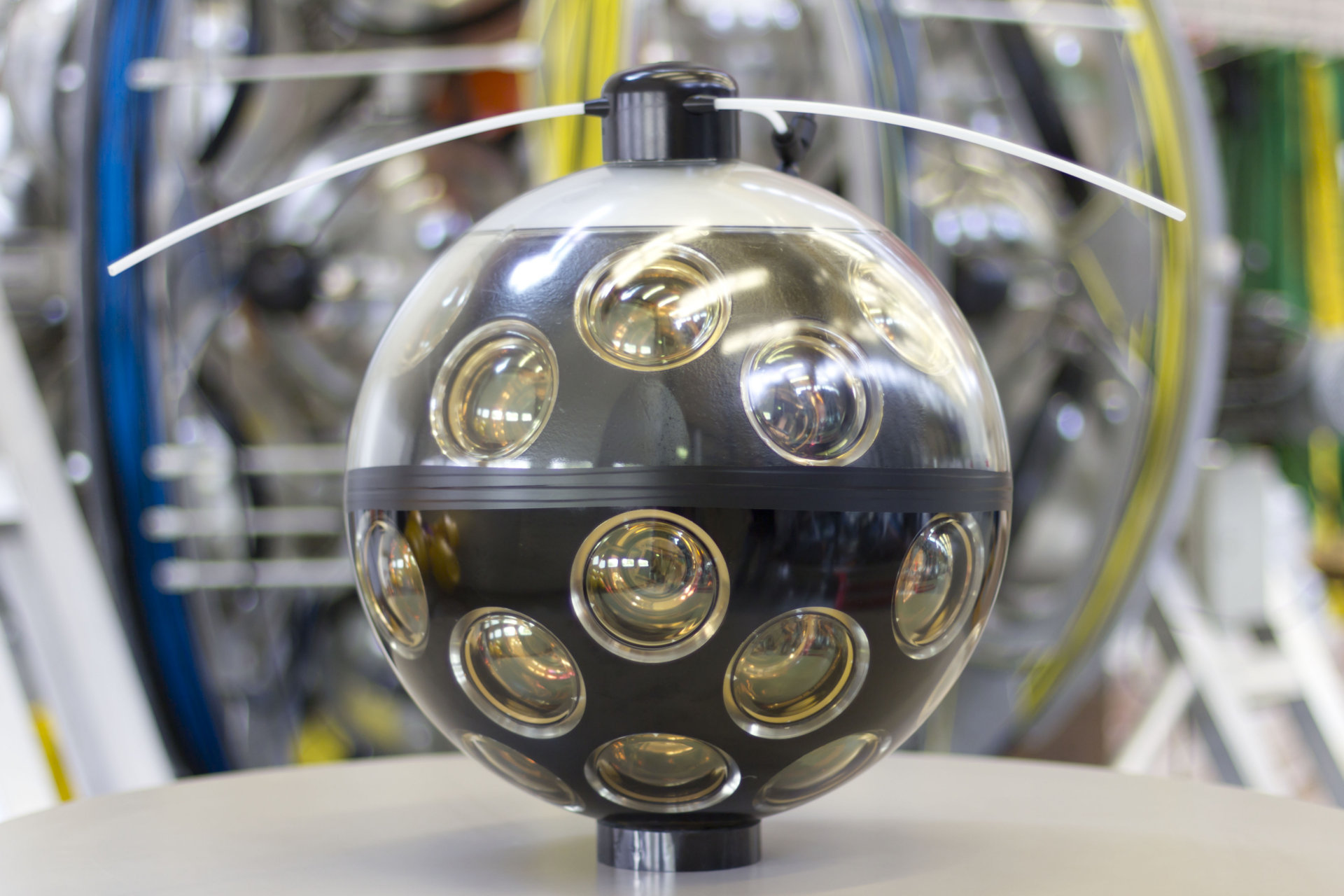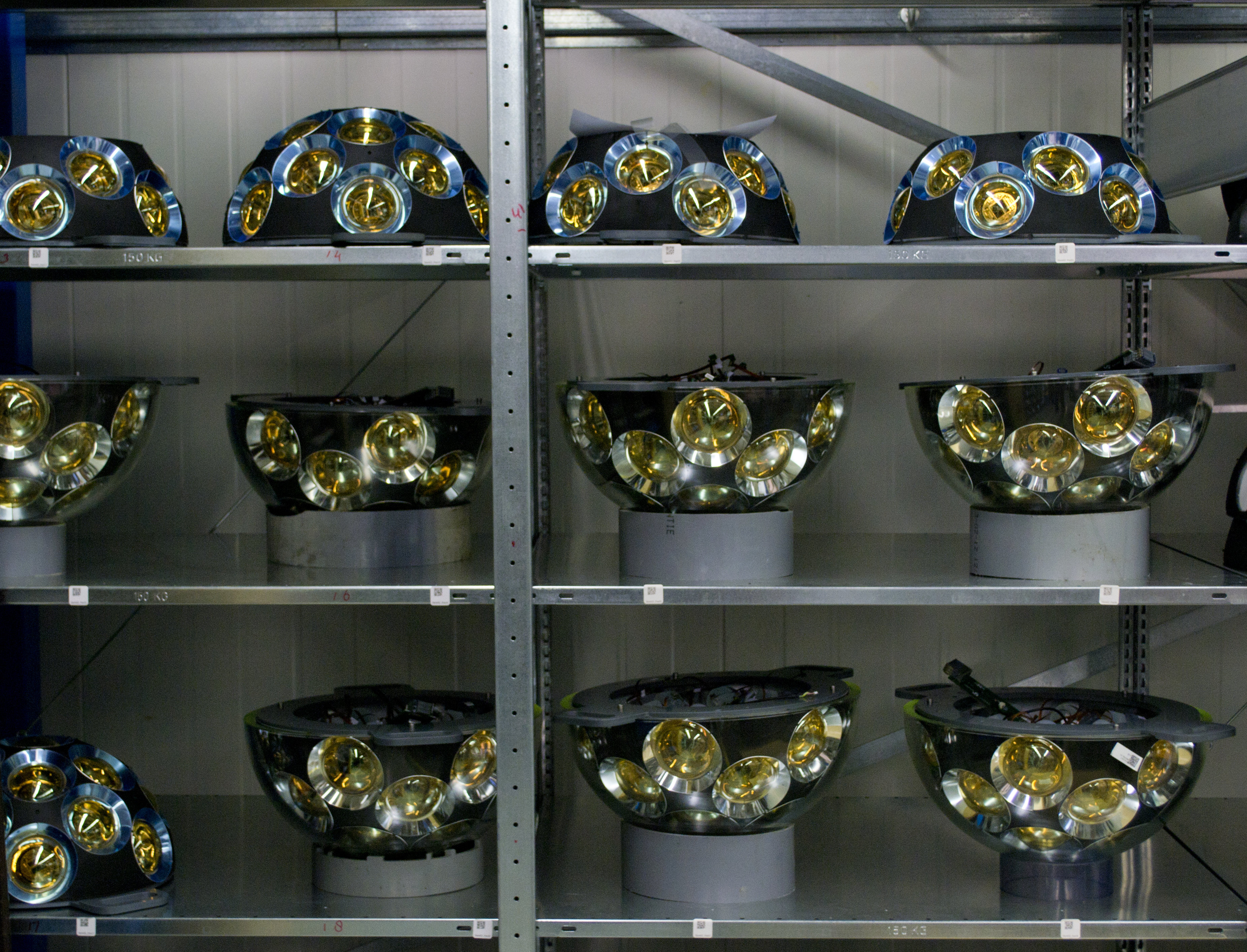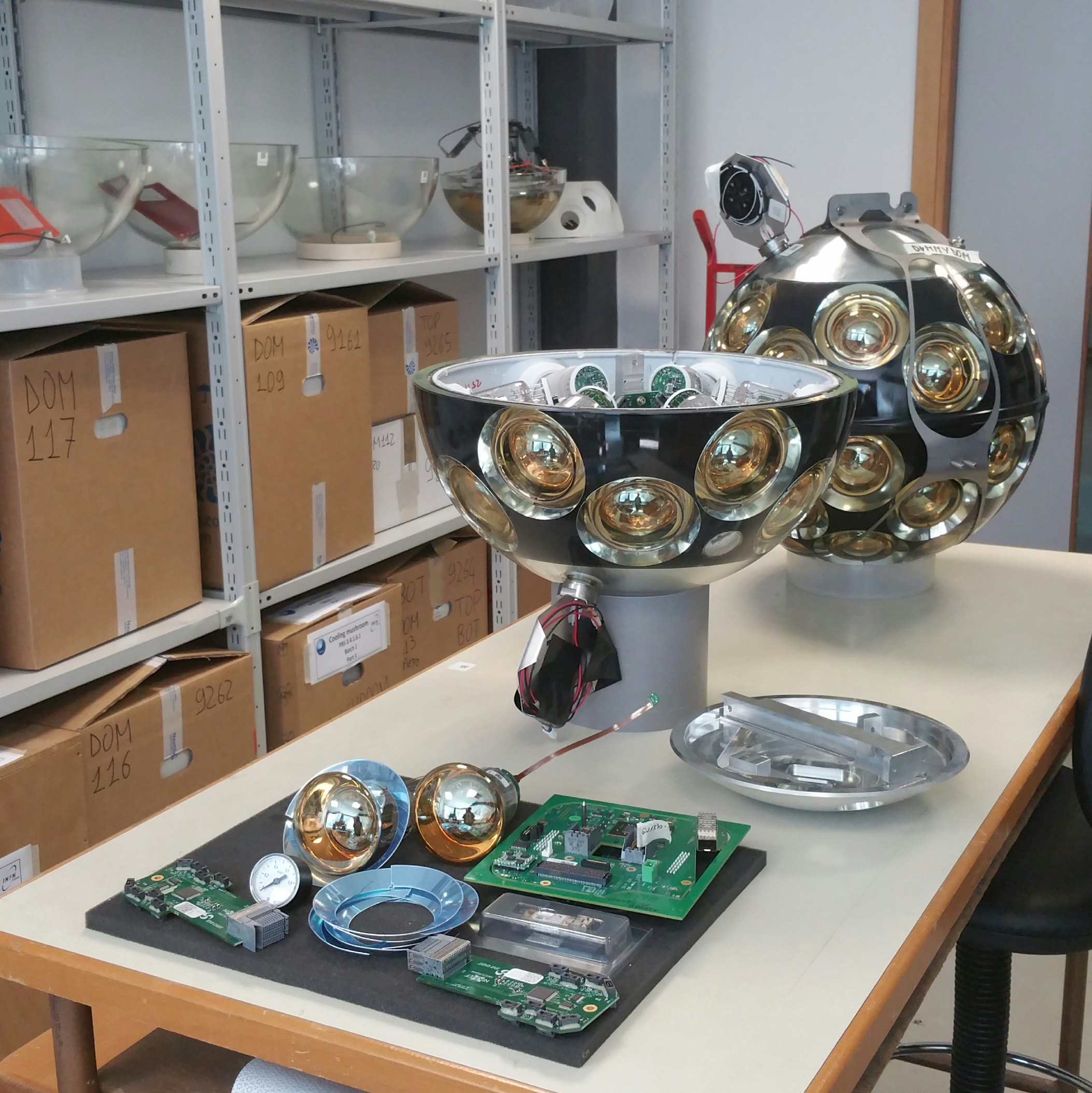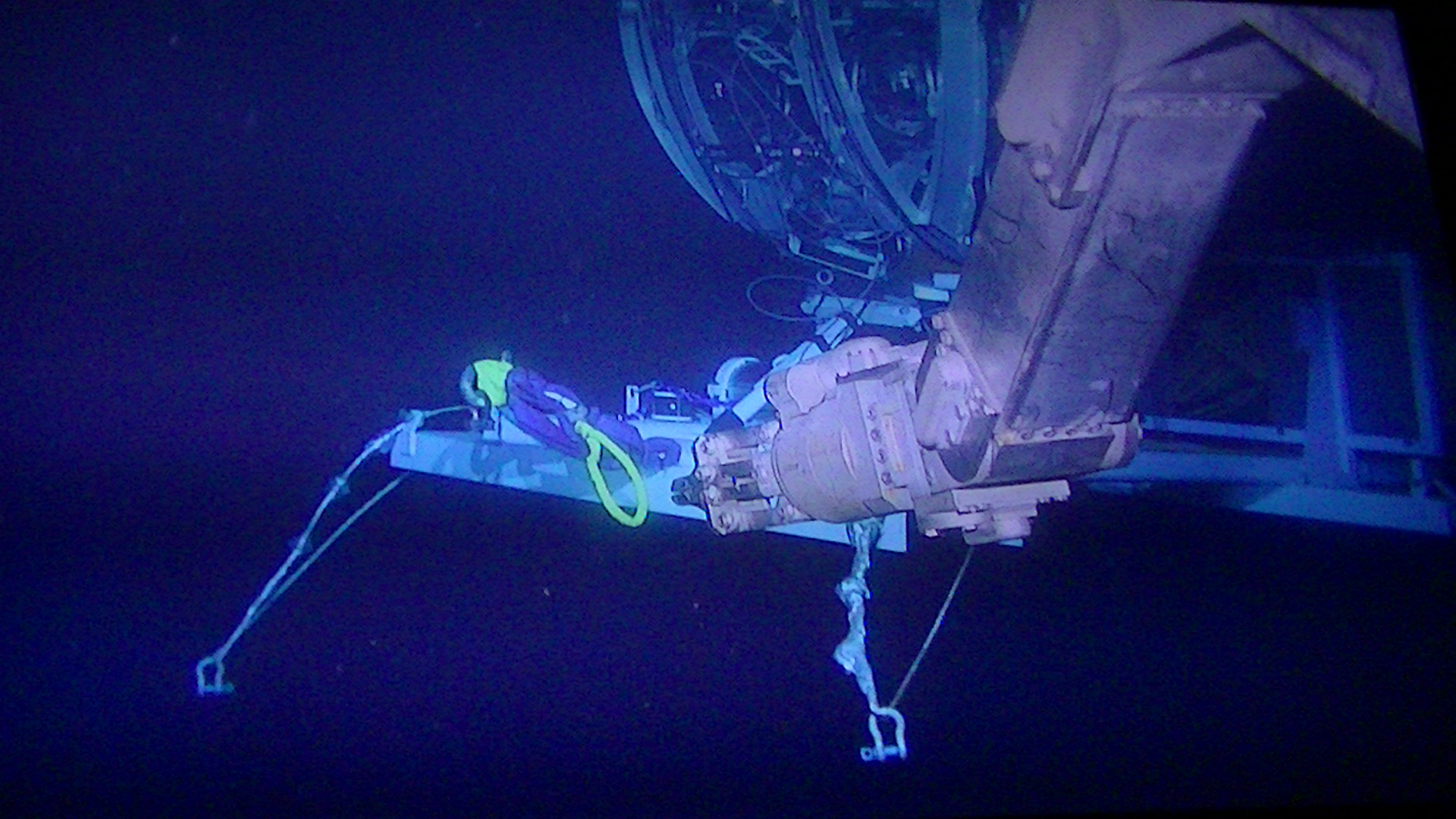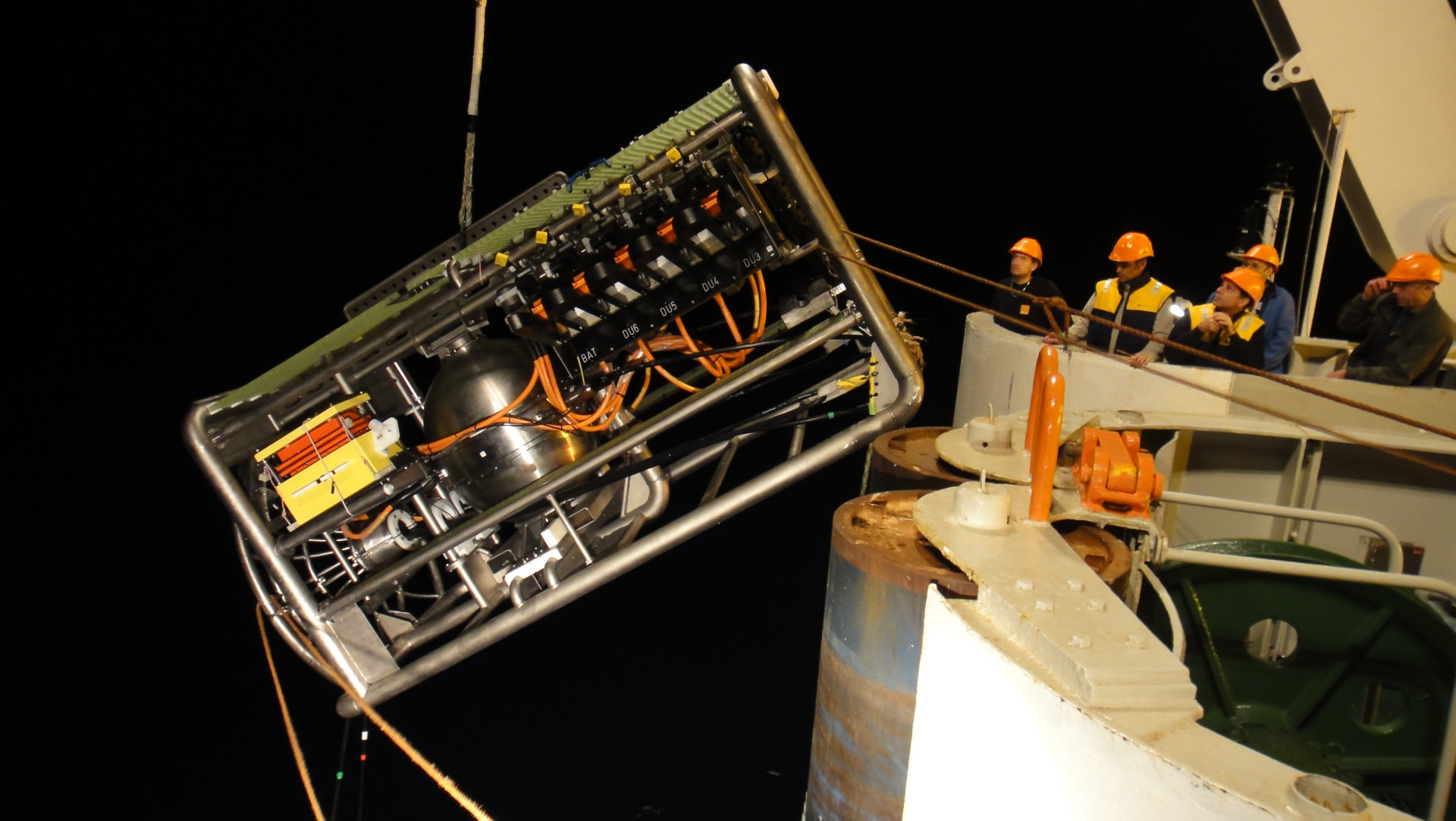But while neutrinos have been hypothesized about since 1930, very little is known for sure about them — despite their being thought to be the second most common particle in the universe, after light particles. Our relative lack of knowledge may be about to change, though.
“Neutrinos are extremely important, and capable of telling us a great deal about life on Earth and the evolution of the universe,” Maarten de Jong, a spokesperson for the Cubic Kilometer Neutrino Telescope project, or KM3NeT, tells Digital Trends.
KM3NeT is a 240-person collaboration with the goal of installing a cutting-edge neutrino telescope in the deepest part of the Mediterranean. This week it announced its latest plans to do this. “In order to be able to detect neutrinos you have to have an enormous telescope,” de Jong says. “Since neutrinos interact very weakly with normal matter, you need a tremendous amount of material before you can see them. We realized a long time ago that the deep waters of the Mediterranean would be ideal because these natural wares are very transparent and come for free. However, while we knew how to detect neutrinos, it was a long time before we could create a cost-effective technology that would allow us to build a telescope of the required size.”
Using an array of thousands of optical sensors capable of detecting the faint light in the deep sea of charged particles resulting from collisions between neutrinos and the Earth, KM3NeT’s telescope will open up a new window on the universe. Its underwater location gives it a detector volume of several cubic kilometers of clear sea water.
Right now de Jong says that the project is coming to the end of its first phase. This involved developing a plan for building the research infrastructure on the Mediterranean ocean floor. The next stage, which will require additional funding of around 95 million euros, is hoped to be completed during the next four years — and will include building the telescope itself.
Still, when it comes to unlocking the secrets of the universe, that’s time and money worth spending!
